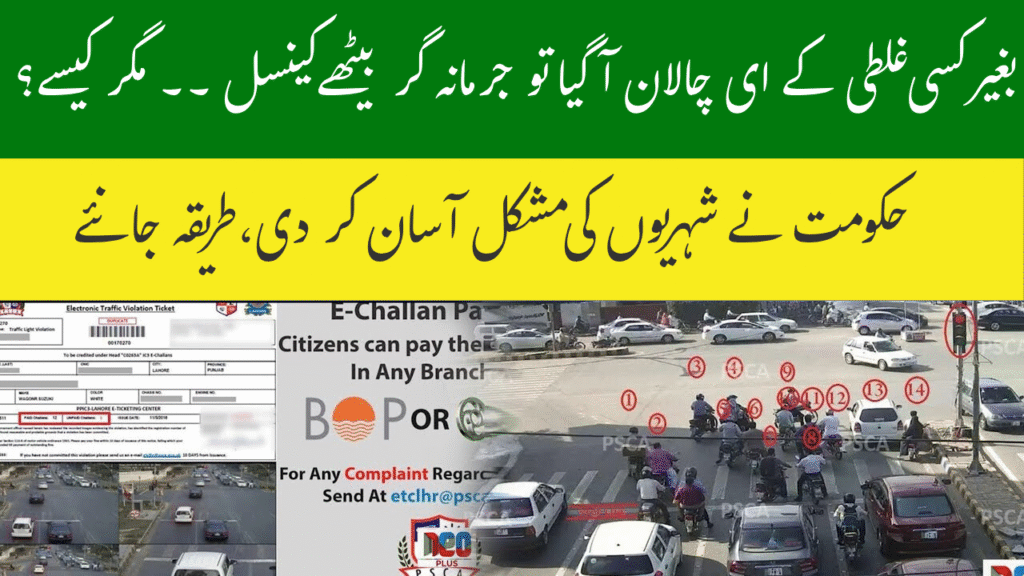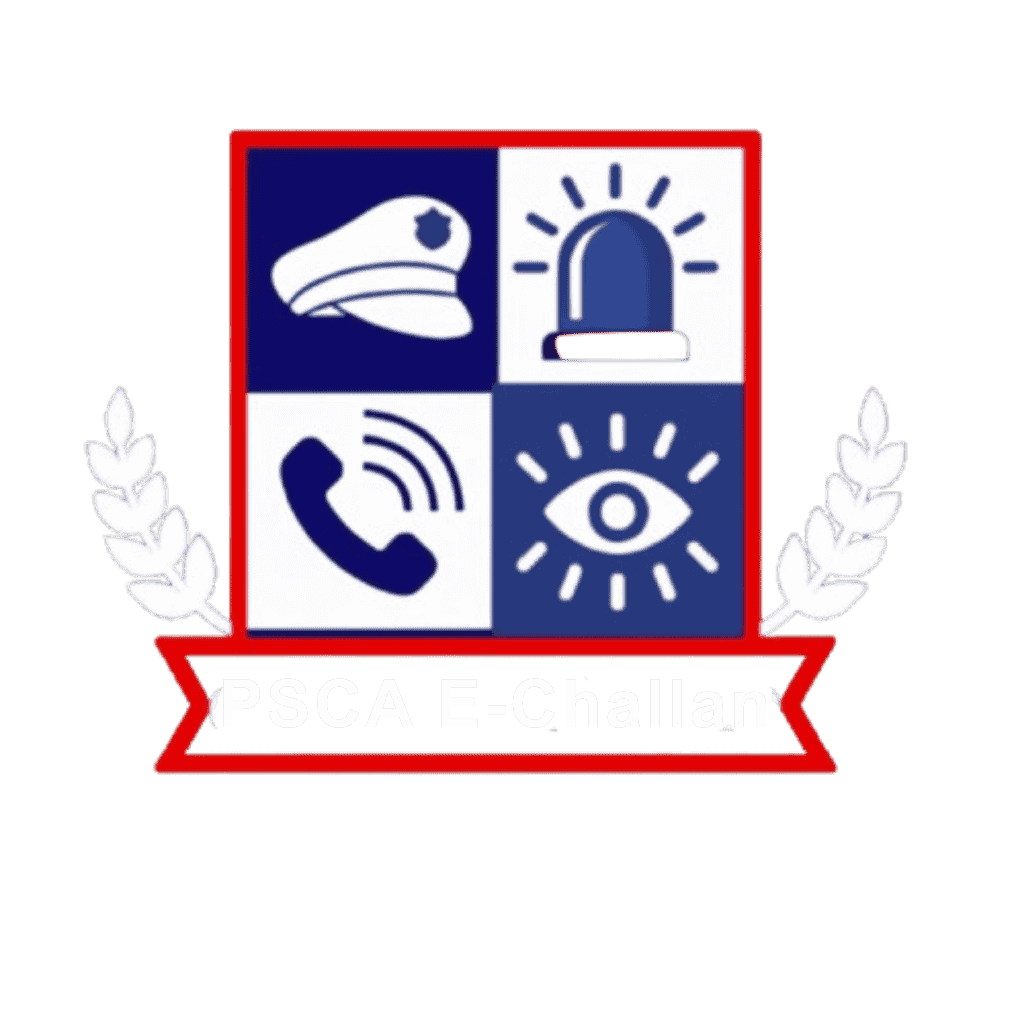
Have you received an unfair e-challan from PSCA that you believe was issued incorrectly? Whether it’s a camera error, plate misread, or simply a mistake, you’re not alone.
Thankfully, the Punjab Safe Cities Authority (PSCA) now offers an easy, transparent, and home-based solution to cancel incorrect e-challans — no more long queues or office visits!
In this article, you’ll learn exactly how to dispute a wrong e-challan, what steps to follow, and how to increase the chances of a successful cancellation.
E-Challan:
An e-challan is a digital traffic violation ticket issued using automated surveillance cameras, primarily managed by PSCA in Punjab, Pakistan. These tickets are sent to vehicle owners for infractions such as:
- Speeding
- Signal violations
- Wrong parking
- Lane violations
While the system helps reduce corruption and manual error, it’s not flawless. Mistakes can happen, and when they do, you need to act fast — and smart.
Common Reasons for Receiving a Wrong E-Challan
You might receive a wrong e-challan due to:
- Camera misidentification of your vehicle
- Plate duplication or similarity
- Time/date discrepancies
- Technical system glitches
Don’t panic. If you believe the challan is unjust, you now have the right to challenge it.
PSCA's New E-Challan Cancellation Facility
In a citizen-friendly move, the PSCA now allows vehicle owners to cancel wrong e-challans directly from home.
Official Process to Cancel E-Challan Online
To dispute a challan, all you need to do is send an email with your case details to the official PSCA email address:
Email: etclhr@psca.gop.pk
Step-by-Step Guide to Cancel Your Wrong E-Challan
Step 1: Prepare Your Details
Gather the following before sending the email:
- Vehicle Registration Number
- E-Challan Number
- Date & Time of Violation
- Your Contact Information
- Reason for Dispute
- Supporting Evidence (dashcam footage, CCTV snapshots, GPS logs, etc.)
Step 2: Write the Email
Here’s a sample email template you can use:
Subject: Request for Cancellation of Wrong E-Challan
Dear PSCA Team,
Subject: E-Challan Cancellation Request – XXXXXXXXXX – ABC-123
Dear PSCA Traffic Management Team,
I hope this email finds you well. I am writing to formally dispute e-challan number XXXXXXXXXXX issued to vehicle ABC-123 on [date] at [location].
After careful review, I believe this challan was issued in error due to [specific reason]. At the time of alleged violation, [provide your explanation with details].
I have attached supporting documents for your review and respectfully request the cancellation of this e-challan.
Thank you for your attention to this matter.
Best regards,
[Your Name]
[Contact Number]
Step 3: Attach Evidence
Always attach clear, date-stamped evidence that proves your vehicle’s non-involvement in the violation.
Step 4: Send the Email
Send the email to: etclhr@psca.gop.pk
Wait patiently for a response — most cases are resolved within a few working days.
What Happens After You Submit?
- PSCA will review your case manually
- If your claim is found valid, the e-challan will be cancelled
- You may receive a confirmation by email or SMS
Why This Initiative Matters
This step by PSCA:
- Encourages fair enforcement
- Empowers citizens to stand up for their rights
- Improves trust between the public and traffic enforcement
- Saves time, cost, and unnecessary legal steps
Pro Tips to Get Your Challan Cancelled
Use clear and polite language
Be honest and concise in your reason
Provide strong, irrefutable evidence
Send your email promptly — don’t delay
Common Mistakes to Avoid
- Submitting incomplete information
- Using aggressive or demanding language
- Failing to provide supporting evidence
- Not following up appropriately
Final Words
Getting a wrong e-challan can be annoying — but now, you don’t have to suffer silently. With PSCA’s email-based cancellation system, the power to fix errors is in your hands.
📢 Don’t ignore a false challan — challenge it with confidence, the right evidence, and proper communication.
